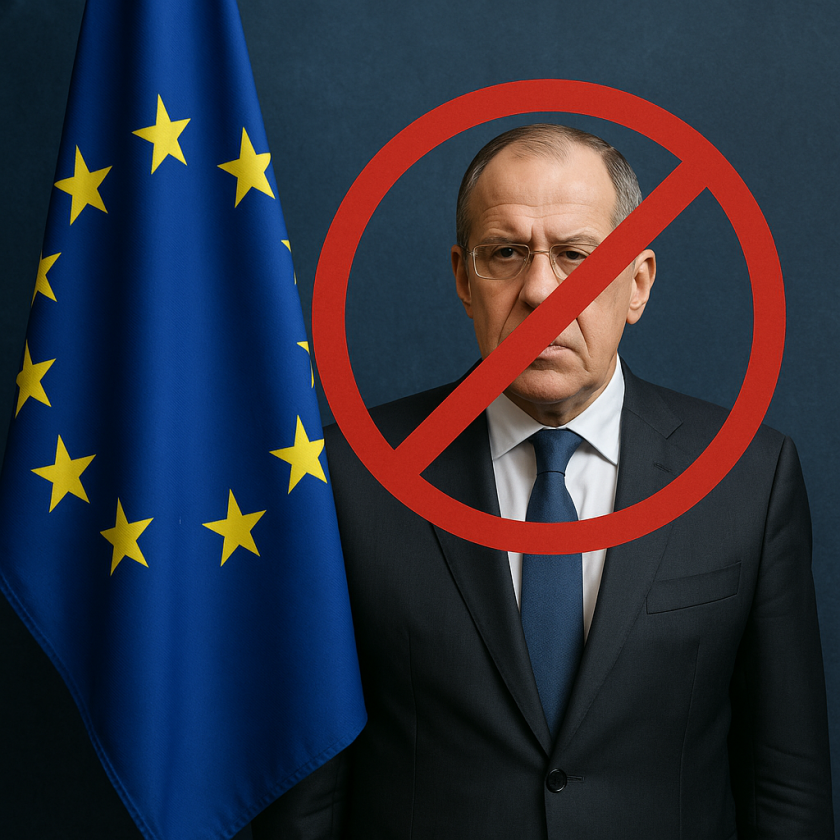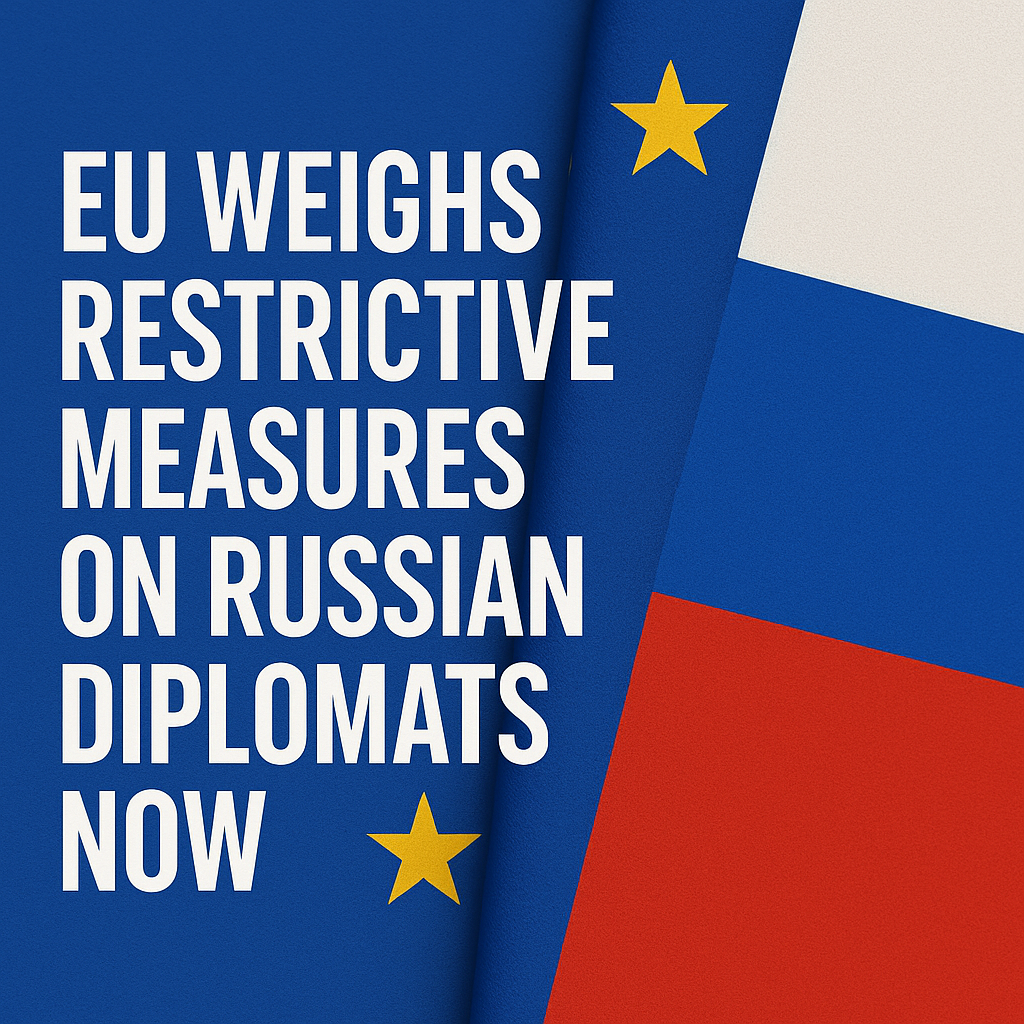EU Weighs Exclusive Restrictions on Russian Diplomats Now
EU Weighs Exclusive Restrictions on Russian Diplomats Now
The EU is currently contemplating exclusive restrictions that would target Russian diplomats, reflecting the ongoing tensions stemming from geopolitical conflicts. The proposed measures signal a significant shift in how the EU interacts with Russian officials and could have far-reaching implications.
Understanding the Context of Proposed Restrictions

The suggestion for exclusive diplomatic restrictions arises amid growing concerns over Russia’s actions in Ukraine and its broader foreign policy. Reports indicate that various EU members are advocating for measures that would limit the travel and activities of Russian diplomats within EU borders.
Motivations Behind the Restrictions
Several factors are prompting the EU’s consideration of these restrictions:
1. Geopolitical Tensions: The Russia-Ukraine war has heightened diplomatic strains, and many EU countries believe that restrictions could apply pressure on the Russian government.
2. Security Concerns: There are increasing fears regarding espionage activities by Russian diplomats, particularly following multiple incidents across Europe that have raised alarms about national security.
3. Comprehensive Sanctions: As part of a broader strategy to isolate Russia diplomatically and economically, these restrictions would complement existing sanctions aimed at limiting Russia’s influence.
Diverse Opinions on the EU’s Decision
As the EU discusses these restrictions, opinions within and outside the bloc differ significantly.
Support from Eastern European Nations
Countries like Poland and the Baltic states have expressed strong support for implementing strict guidelines. In their view, this is a necessary step to counter Russian aggression and reassure their citizens that their security is a priority. Polish officials have pointed out that allowing unrestricted Russian diplomacy contradicts the purpose of the sanctions already in place.
Hesitation from Western European States
Conversely, nations such as Germany and France appear more hesitant, advocating for a balanced approach. They caution against potential diplomatic fallout that could arise from overly stringent measures. Diplomatic channels, they argue, should remain open as a means to facilitate communication and possibly negotiate a resolution to ongoing conflicts. French diplomats have emphasized the need for dialogue, suggesting that building bridges—even in tumultuous times—can yield unexpected diplomatic breakthroughs.
A Nuanced Perspective
Some analysts highlight the complexity of this issue, suggesting that exclusive restrictions may have unintended consequences. If implemented, they could exacerbate tensions and reduce opportunities for cooperation in various global challenges, such as climate change or nuclear non-proliferation. The intertwined nature of global diplomacy means that isolating any one nation could have ripple effects, complicating international relations.
Potential Impacts of Diplomatic Restrictions
Should the EU decide to implement exclusive restrictions on Russian diplomats, the anticipated impacts could be manifold, and not all of them positive.
Short-Term Impacts
1. Increased Diplomatic Isolation: Russian diplomats would find it more challenging to operate within Europe, potentially creating a more isolated stance for Russia in international forums.
2. Heightened Security Measures: EU nations may invest more in monitoring and managing the activities of remaining Russian diplomats, resulting in increased bureaucratic processes and heightened tensions on both sides.
Long-Term Consequences
In the long run, these restrictions could reshape the landscape of EU-Russian relations.
– Possible Escalation of Hostilities: Restrictions may lead to reciprocal measures from Russia, aggravating existing hostilities and escalating conflicts.
– Impacts on Future Diplomacy: Diplomatic relations often serve as pathways to conflict resolution. If avenues for engagement are closed, it may render long-term diplomatic solutions more challenging.
A Continuing Debate
As the EU debates the potential restrictions on Russian diplomats, the landscape is characterized by a spectrum of opinions. From Eastern European countries keen on taking a hardline stance to Western European nations advocating for dialogue, the discussion embodies the complexities of international relations in the face of conflict.
While there are valid arguments on both sides, the uncertainties surrounding potential outcomes persist. The EU is at a critical juncture; the decisions made now will likely reverberate through the geopolitical landscape for years to come, necessitating careful deliberation to balance security concerns with diplomatic pragmatism.
In conclusion, whether the EU implements these exclusive restrictions on Russian diplomats remains to be seen. As discussions progress, it is crucial for policymakers to weigh the intricacies involved and consider both immediate and long-range effects on global diplomacy and security.




































